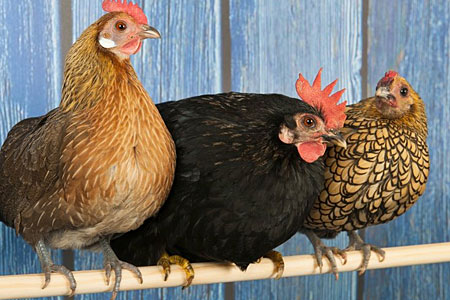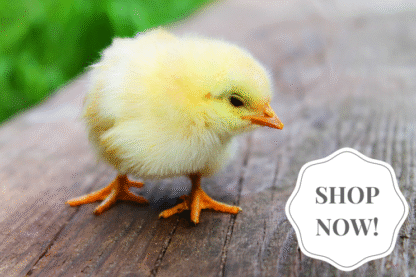
Are you on the fence about whether or not to include a rooster in your flock? Here are 5 reasons to keep a rooster. And, just to confuse you, 5 reasons not to keep a rooster.
Reasons to Keep a Rooster
Baby Chicks
One of the main reasons to keep a rooster is to get fertile eggs from your hens. Of course, you do not need a rooster to get eggs. But you do need a rooster if you want fertile eggs that will hatch into chicks.
Social Dynamic
Chickens interact more naturally when the flock includes a rooster. In general the rooster is at the top of the pecking order. Because the rooster is usually highest in rank, he often breaks up squabbles to keep the system running smoothly.
Danger Alert
Another major reason to have a rooster is that he keeps an eye out for predators and other dangers to the flock. If he detects something amiss, he sounds the alarm so others can pursue defensive strategies.
Colorful Addition
In most breeds, the rooster is more handsome and colorful than the hens. Including a rooster increases variety in a backyard flock, making it more interesting and aesthetically pleasing.
Fun to Watch
Roosters have a whole bag of tricks they employ throughout the day that makes them fun to watch. Sometimes they will call widely-wandering hens to gather around some bit of food. Or they may dance in a courtship ritual toward the hens, or even toward you. Roosters are endlessly fascinating.
Reasons Not to Keep a Rooster
Loud & Noisy
A rooster crows a lot. And roosters don’t necessarily crow only in the morning, but throughout the day and sometimes even at night. Many flock owners enjoy listening to a rooster crow. On the other hand, nearby neighbors may not enjoy the crowing. So take that into consideration when deciding whether or not to include a rooster in your flock.
Hen Injuries
A ardently amorous rooster can cause hens to lose feathers on their necks, wings, and backs. Or he may inflict even more serious injuries. This potential problem can be mitigated, however, by maintaining an appropriate mating ratio, by fitting the hens with mating saddles, and by housing the rooster in his own private bachelor quarters for part of the year.
Can Be Dangerous
Roosters can be dangerous, especially when caught by surprise. Their beaks can bite, their toenails can scratch, and their spurs can stab. A rooster that’s not otherwise aggressive typically can be managed by trimming his spurs and trimming his nails.
Can Be Aggressive
Many roosters are friendly, but some can be aggressive toward other chickens and even toward humans. Unfortunately, an aggressive rooster often targets small creatures, such as pets and children. Since rooster aggression has a strong genetic component, it pays to know how to assess a rooster’s temperament. A persistently aggressive rooster likely will need to be rehomed.
Legalities
Not every community allows roosters. A multiplicity of laws, from Home Owner Association regulations to municipal statutes can dictate what you can and cannot do regarding keeping a chicken flock that includes a rooster. So be sure to check out legalities before you make a final decision.
And that’s today’s news from the Cackle Coop.
Gail Damerow has written numerous books about keeping poultry, many of them available from the Cackle Bookstore.

